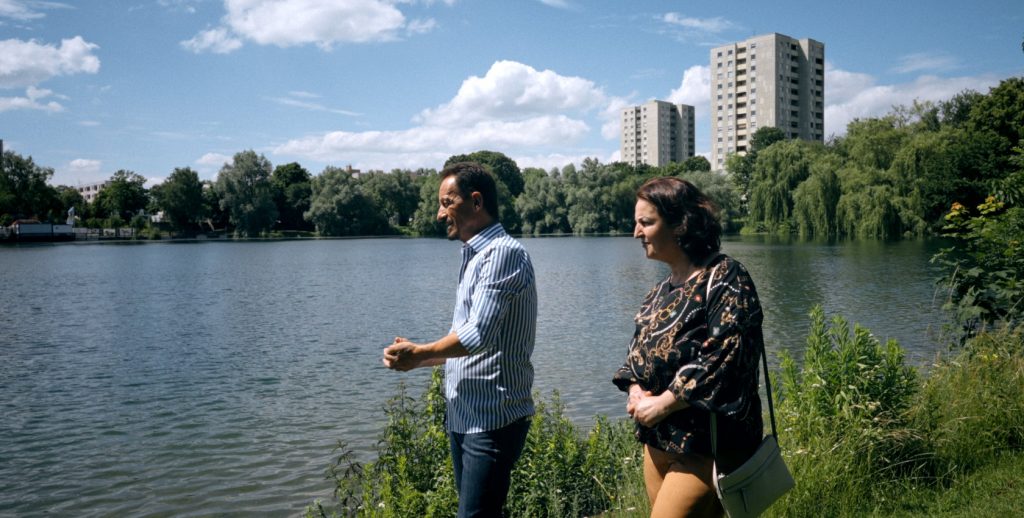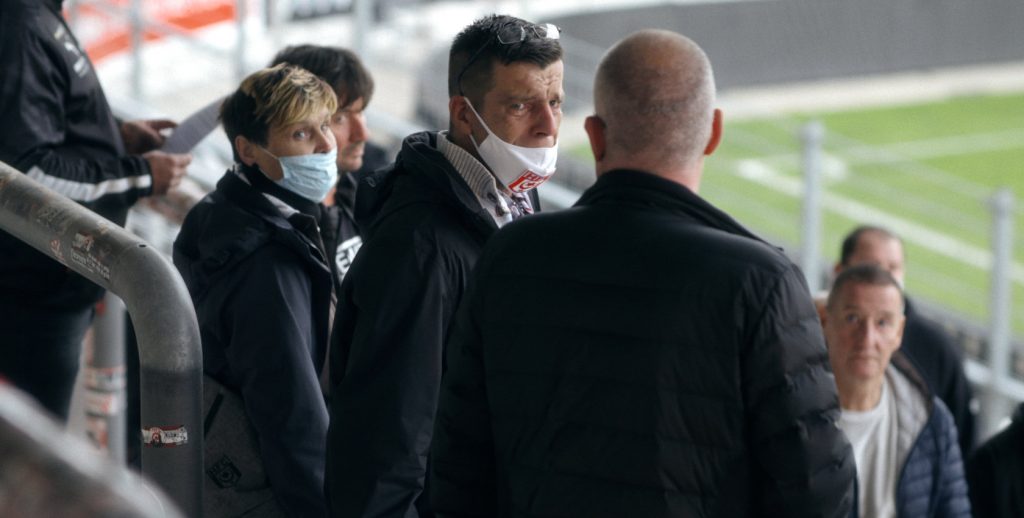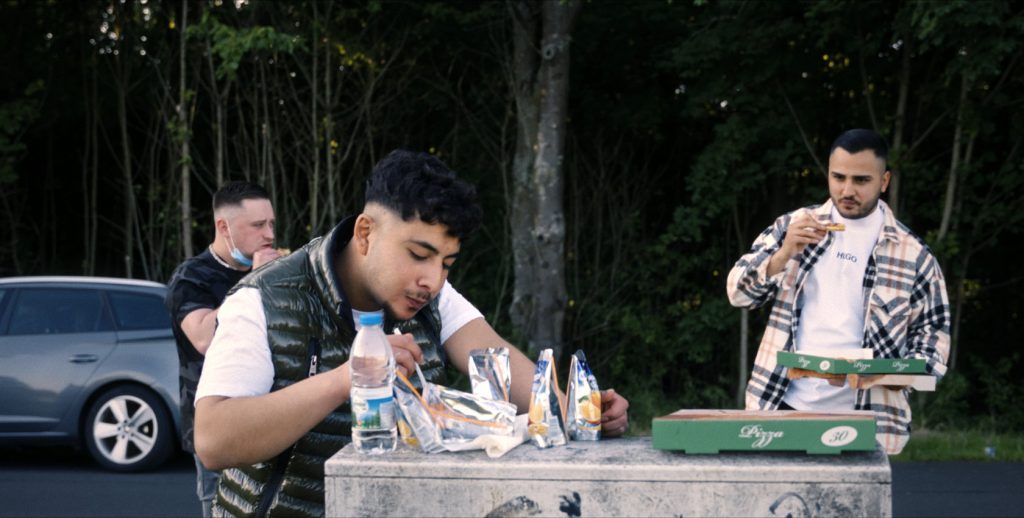Documentary series by Julian Vogel | 87min | 67min | 85min | DE 2023
Camera: Luise Schröder, Julian Vogel
Sound: Oscar Stiebitz, Julian Vogel
Editor: Gregor Bartsch, Sebastian Winkels
Munich 2016, Halle 2019 and Hanau 2020: three right-wing extremist attacks by so-called „lone wolves: Alleged lone perpetrators who, seemingly without being part of classic extremist structures, radicalized themselves on the Internet and suddenly struck in public spaces. These are stories that now dominate the headlines: Right-wing terror is currently considered the greatest threat to democracy in Germany, according to the Office for the Protection of the Constitution. And this despite the fact that until recently such perpetrators were often classified as mentally ill, „confused” lone perpetrators and thus denied their racism. These times are over: After the attack in Hanau, Frank Walter Steinmeier spoke of an „attack on all of us”. But who are „all of us”?
The trilogy „EINZELTÄTER (Parts 1–3)” independently takes the perspective of the people whose relatives were actually the target of the attacks and whose lives will never be the same again.
EINZELTÄTER Part 1: MÜNCHEN
Arbnor lost his sister in the 2016 attack at the Olympia shopping center, Hasan and Sibel lost their son. For a long time, the relatives had to fight for the state to recognize the racist background of the crime. Only after the attacks in Halle and Hanau did they succeed.

EINZELTÄTER Part 2: HALLE
EKarsten lost his only son Kevin in the Halle attack. While the public watches the trial of the right-wing extremist perpetrator, he struggles to deal with his grief. He finds support in the Halle FC fan scene.

EINZELTÄTER Part 3: HANAU
The racist attack of February 19, 2020 has changed Hanau-Kesselstadt. People of different origins live here, and six of the nine victims died here. After the attack, people here stick together, try to deal with the consequences of the act, and fight for clarification. And this is where the father of the perpetrator and the surviving relatives of the victims live in the immediate vicinity.

Since 2018, I have been in contact with survivors of the racist attack in Munich in 2016, which was initially classified by the investigating authorities as a non-political rampage. This changed with the attack in Halle in 2019, in the wake of which the Munich act was classified as right-wing violence and right-wing extremism as the greatest threat to the security situation. After the attack of Hanau 2020, which brought the problem of right-wing „lone perpetrators” ultimately into public consciousness, I decided to make a documentary film that accompanies the mourning work of the bereaved and their relationship to the social dimension of these three acts. The result was a trilogy. The families in Munich and Hanau are united by the fact that their mourning work is interwoven with the fight against racism. In Halle, the situation is different: Kevin’s father Karsten has to deal with the death of his child because someone wanted to strike a minority to which he himself does not belong. For me, his grief was no less touching than the grief of the other people affected. It was imortant to me to also dedicate myself to his story



 Deutsch
Deutsch